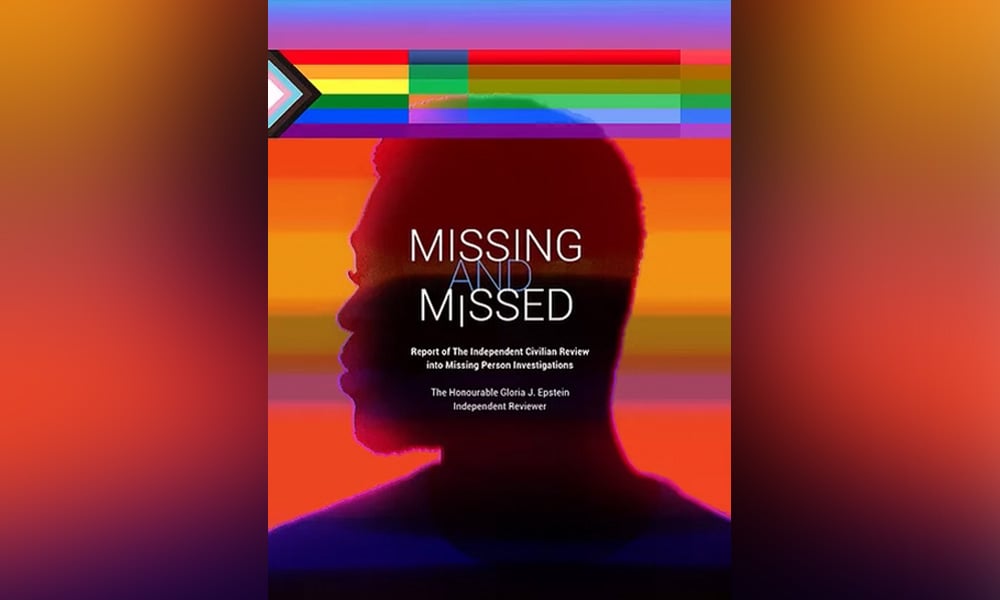
Gloria Epstein, retired Ontario Court of Appeal justice, serves as independent reviewer

The Office of the Federal Ombudsman for Victims of Crime has welcomed all 151 recommendations in the final report of the Independent Civilian Review into Missing Person Investigations, submitted on Apr. 9 to the Toronto Police Services Board.
Heidi Illingworth, federal ombudsman for victims of crime, issued a statement supporting the report’s recommendations aiming toward the elimination of systemic discrimination in accordance with the calls for justice in the report of the National Inquiry into Missing and Murdered Indigenous Women and Girls.
“It is our responsibility to dismantle barriers perpetuated by colonialism, sexism, heterosexism, and racism because 2SLGBTQ+ individuals and Indigenous women and girls experience some of the highest rates of violence in our communities,” said Illingworth.
Missing and Missed, the report of the Independent Civilian Review into Missing Person Investigations led by Gloria Epstein, retired justice of the Court of Appeal for Ontario, and Mark Sandler, lead counsel, discussed deficiencies and systemic issues relating to the Toronto Police Service’s handling of certain investigations and laid down recommendations for efficient, effective and bias-free investigations and a better relationship between police and the affected communities.
The ombudsman’s office urged all of Canada’s police leaders and agencies to review the final report’s recommendations so that they may consider changing their policies and procedures for missing person investigations accordingly. The office also encouraged all Canadians to read the report and to join the call to action in the fight against systemic discrimination.
The office stressed the need for a victim-centred approach when dealing with missing person cases, given that such cases are especially challenging and stressful for the families, friends and communities involved. The victims’ loved ones deserve empathetic and compassionate treatment, timely action and communication and a sensitive and professional multi-disciplinary response, especially if the victims belong to marginalized and vulnerable communities, said the office.
“In my view, it is also problematic that family members left behind are not viewed as victims of crime,” said Illingworth.
The office particularly commended the report’s 43rd recommendation, which suggested better supports for victims’ families and for those impacted by missing person cases, and expressed approval that the report addressed most of the office’s recommendations in its submission.
The office’s submission suggested that multidisciplinary teams provide the loved ones of missing persons ongoing information regarding the investigation and access to supports and utilize a victim-centred and trauma-informed approach when communicating. The office also emphasized the necessity for police education focused on cultural humility.
View the full report and recommendations here.